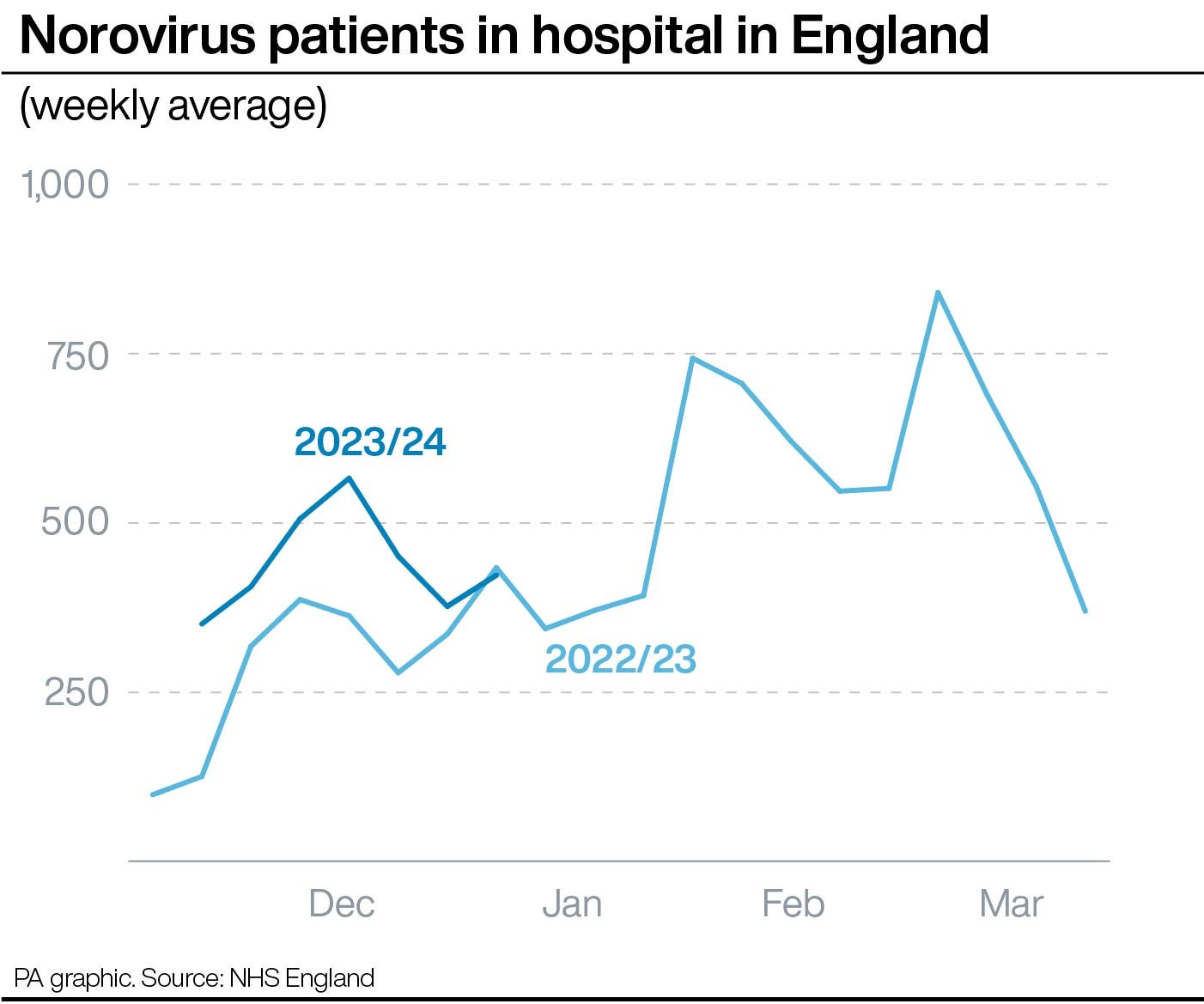Your Norovirus questions answered as cases spike across the UK
The stomach bug spreading around the UK at the moment
Outbreaks of Norovirus are closing hospital wards across the country with cases spiking.
Norovirus cases in the first two weeks of January were 40 per cent higher than average for this time of winter, with reports of the illness highest in adults aged 65 and over.
Cases of the virus, which can sweep through care homes, hospital wards and nurseries, have been rising since last year and are above pre-pandemic levels. Health experts said the rise in cases could be linked in part to the recent cold weather.

Professor Sir Stephen Powis, NHS national medical director, said: “These figures show this continues to be a challenging winter, with our staff facing a combination of considerable pressures including winter viruses, high bed occupancy and the knock-on effects from strikes.
“Staff must also contend with continued issues discharging patients who are medically fit due to a lack of social care capacity and a year-on-year increase in ambulances arriving at hospitals.”

NHS England reported stark spikes in cases earlier in winter, with the number of people in hospital with norovirus three times higher than the previous year.
And there was an average of 438 adult hospital beds filled last week by people with diarrhoea and vomiting or norovirus-like symptoms, according to NHS England. That figure is higher than at the same point both last year and in 2022.
What is norovirus?
What are the symptoms?
Norovirus is a stomach bug that can cause moderate to intense nausea, vomiting and diarrhoea. You might also get a headache, high temperature and feel generally achy. Symptoms usually come on quickly and can be quite unpleasant. Thankfully though, it tends to clear up after a couple of days.
How is norovirus transmitted?
Despite being known as the ‘winter vomiting bug’, people can catch norovirus at any time of year. However, Abbas Kanani, pharmacist at Online Pharmacy Chemist Click, explain: “It is more common winter because we generally spend more time indoors, and the virus is highly infectious.
“You can get it through having close contact with someone with norovirus, touching surfaces or objects that have the virus on them, then touching your mouth, and eating food that’s been prepared or handled by someone with norovirus.”
Researchers believe norovirus can survive on surfaces, such as kitchen tops and door handles, for up to two weeks. This is why avoiding contact with others if you’re infected is important, as well as regular hand-washing and cleaning down surfaces in any shared living spaces.
How long are you contagious with norovirus?
Studies have shown you can still spread norovirus for two weeks or more after you feel better.
How do you cure norovirus?
While it’s certainly an unpleasant bug, most people will be able to manage norovirus themselves.
“You can treat it at home. Rest, and drinking lots of fluids to avoid dehydration is important,” says Kanani. “It can take two to three days to feel better and it’s best to stay at home in this time.”
Opting for water and squash is a good idea (fizzy drinks and fruit juice may make symptoms worse). If you’re struggling to keep things down, sipping drinks slowly and eating small amounts at a time can help.

Can norovirus be deadly?
Norovirus is more unpleasant than serious most of the time. But it might be more concerning in young babies, people with certain pre-existing conditions and weakened immune systems, or anyone more at risk of dehydration.
If symptoms are relentless and you’re struggling to keep down fluids, a rehydration formula from your pharmacy may help. “If symptoms are severe to the point where the person cannot stay hydrated, they may need to go to hospital for IV fluids,” adds Kanani.
“You should seek emergency medical attention if you vomit blood or have vomit that looks like ground coffee, green vomit in adults, yellow-green or green vomit in children, notice you have a stiff neck and pain when looking at bright lights or have a sudden, severe headache or stomach ache.”
Join our commenting forum
Join thought-provoking conversations, follow other Independent readers and see their replies
Comments
Bookmark popover
Removed from bookmarks